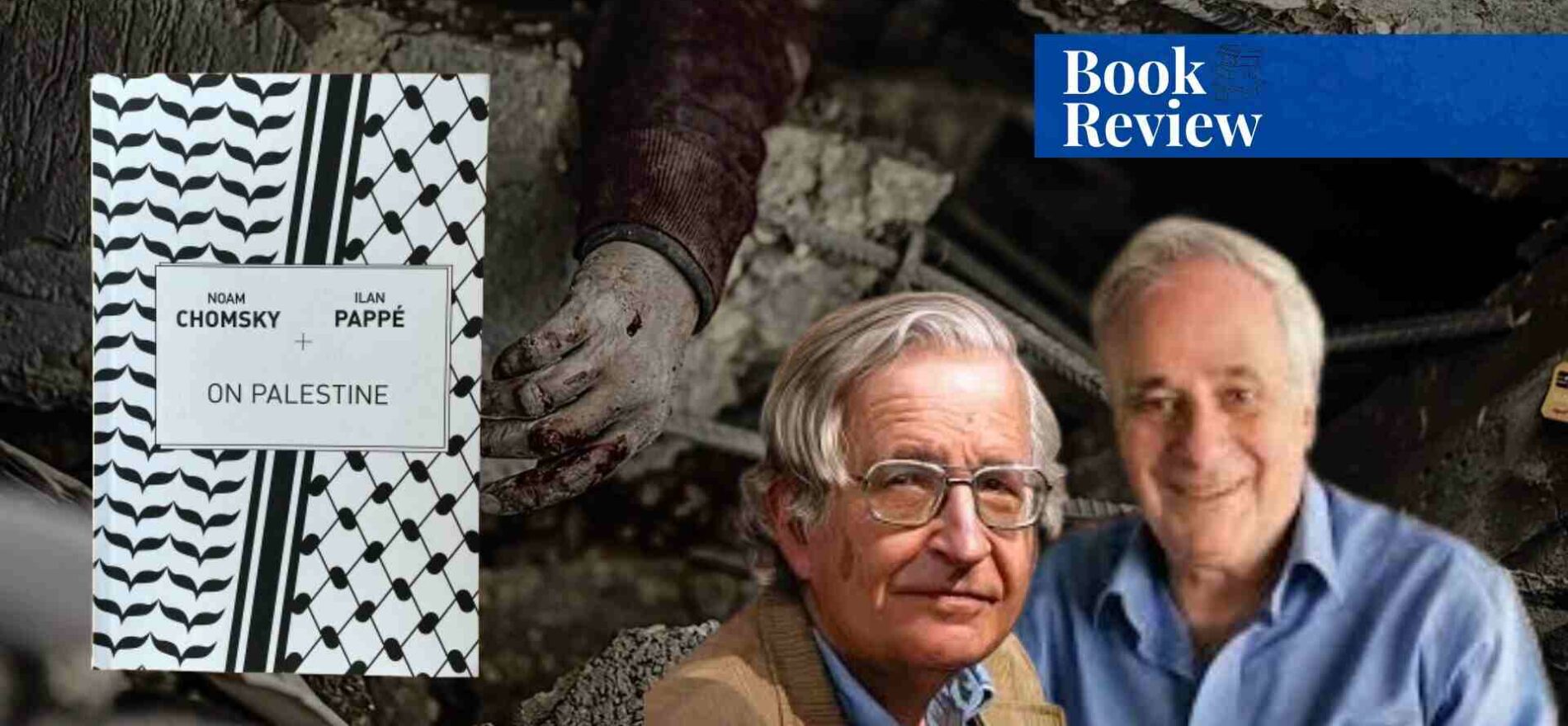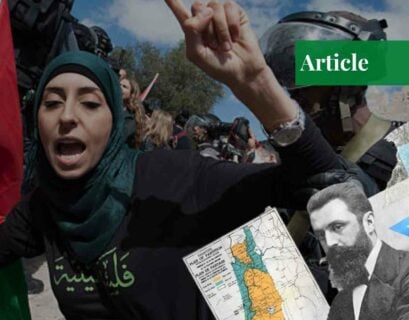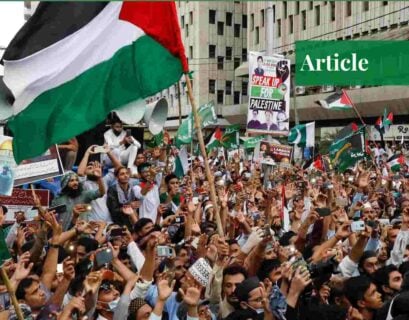The book ‘On Palestine’ is a conversation between two renowned professors, Noam Chomsky and Ilan Pappe which includes talks, interviews, and lectures. Both eminent personalities discuss various aspects of the Israel-Palestine conflict which gives the reader a new insight and perspective on the illegal occupation and land grab by Israel.
Through their very conservations, a grasp of various pressing issues within the Palestinian cause can be attained by the readers. The book also is pivotal when it comes to different considerations and discourses that can be helpful as a guide towards a potential solution to the Palestine-Israel conflict. Furthermore, various notions are discussed in the book such as the concept of Zionism, its political nature, and multiple strategies used by Zionists. A great amount of emphasis is put upon the international solidarity movements especially the BDS movement against Israel, in support of the Palestinian cause. Western-vested interests and support for Israel’s unjust atrocities are criticized by Chomsky. Moreover, extended support to the Palestinian people living under the apartheid state of Israel is discussed by both professors with converging as well as diverging views on various solutions.
Mirroring Settler Colonialism
In this book, Pappe describes the term settler colonialism by comparing the Zionists of the late 17th century with White settlers and explains how similar their occupation appears. He believes both emanate from the same mindsets driven by an identical pattern of colonialism. He further explains how Zionists started to ‘settle’ in Palestinian lands at first and then later justified their assault on the Palestinians by looking for different excuses. In short, Israel is the 20th-century version of colonialism.
Zionist Strategies and Ethnic Cleansing
Authors convene an unvarnished discussion of ongoing horrors in Gaza and the West Bank imposed by Israel. Similarly, they discuss the situation as Jewish eyewitnesses themselves, pointing out all the unjust Zionist strategies that require ethnic cleansing to achieve their ultimate goal of wiping Palestine from the face of the earth. While working towards that goal they participate in peace talks as a diversionary tactic just to stall. This covert practice is done to ensure their advances of multiple natures and to reach their goal of an Israel where no land of historic Palestine exists. For this reason, Palestinian people are targeted and dehumanized leading to brutal ethnic cleansing as stated in the book.
Apartheid State of Israel
Furthermore, the book draws a comparison between the current Israeli regime and the apartheid state of South Africa back in the 20th century. The Israeli state apartheid is considered even worse as reiterated by Pappe, he believes even if the Whites of South African apartheid were racist, in the end, the regime collapsed due to the vigilance of Congress. However, the circumstances in the case of Israel-led apartheid are souring quickly.
Chomsky and Pappe dwell upon the various issues of the conflict and dig deeper into the causes of the past trying to connect it to the present and put forward solutions for the future of the conflict. They debate about the two-state solution and the discrepancies that make it unsuccessful especially due to Israel’s constant disengagement and negligence towards the solution. Similarly, Zionist hegemony and tactics are exposed via talks between both personalities that are substantiated by personal experiences. The stark reality of the Zionist thought process is brought forward inculcating a thought-provoking idea for the reader to understand the psyche of the oppressor and what is the reality behind its brutal assault.
International Solidarity Movement
Support of the Palestinian Cause
The book dives deep into the BDS movement explaining that BDS calls for Israel to comply with International law and end its brutal treatment of the Palestinians. The movement is a path to make people aware of the excruciating nature of the crimes the Israeli state is inflicting upon the Palestinians. However, the authors believe the movement needs a big push so that its influence is amplified and its purpose is served in favor of the suppressed Palestinian nation.
Criticism of Western-vested Interests
Noam Chomsky shares highly critical views on the Western agenda in supporting Israel, he analyses the continuous rejection by Israel to every possible solution in the Israel-Palestine conflict. The continuous disengagements by Israel, the assaults on Gaza, and the blatant disregard for ceasefires, etc. are thoroughly discussed and dissected. This chapter gives a deep insight to the reader about the relationship dynamic of Western governments in general the United States in specific and Israel. The question is why the West has Israel’s back regardless of the human rights violations it continuously commits. Likewise, why does Israel so desperately need the support of these countries to further its demonic cause?
Solutions
The solutions in the book are debated comprehensively by both professors. Both believe that any solution should be first directed at the Western governments (United States) and their policymakers because Israel violates Palestinian human rights on the backing of these countries. Moreover, on more specific solutions three contentious issues and their solutions are discussed. First, the border issue, second the status and control of Jerusalem as capital and third, the refugee problem with special mention of fleeing Palestinian refugees and Internally displaced persons (IDPs) due to Israel’s ethnic cleansing.
Conclusion
In summation, this book covers a detailed understanding of the Israel-Palestine conflict. The meticulous details of the past, the dehumanizing atrocities of the present, and why Israel wants to maintain the status quo. Holistic solutions for the future are all amalgamated in this book. The whole conflict is discussed holistically and it is a good entry point for those who want to educate themselves about the details of the conflict. One gets a clearer picture of the reality as opposed to the partial or augmented facts of the conflict that the Western mainstream media feeds one. This book also defeats the biased portrayal of the conflict mostly operated by Israel and brings forward the stark realities of the conflict.
If you want to submit your articles, research papers, and book reviews, please check the Submissions page.
The views and opinions expressed in this article/paper are the author’s own and do not necessarily reflect the editorial position of Paradigm Shift.



















